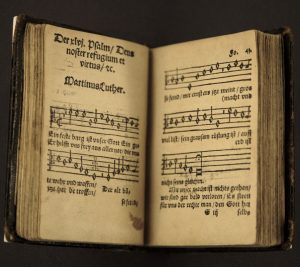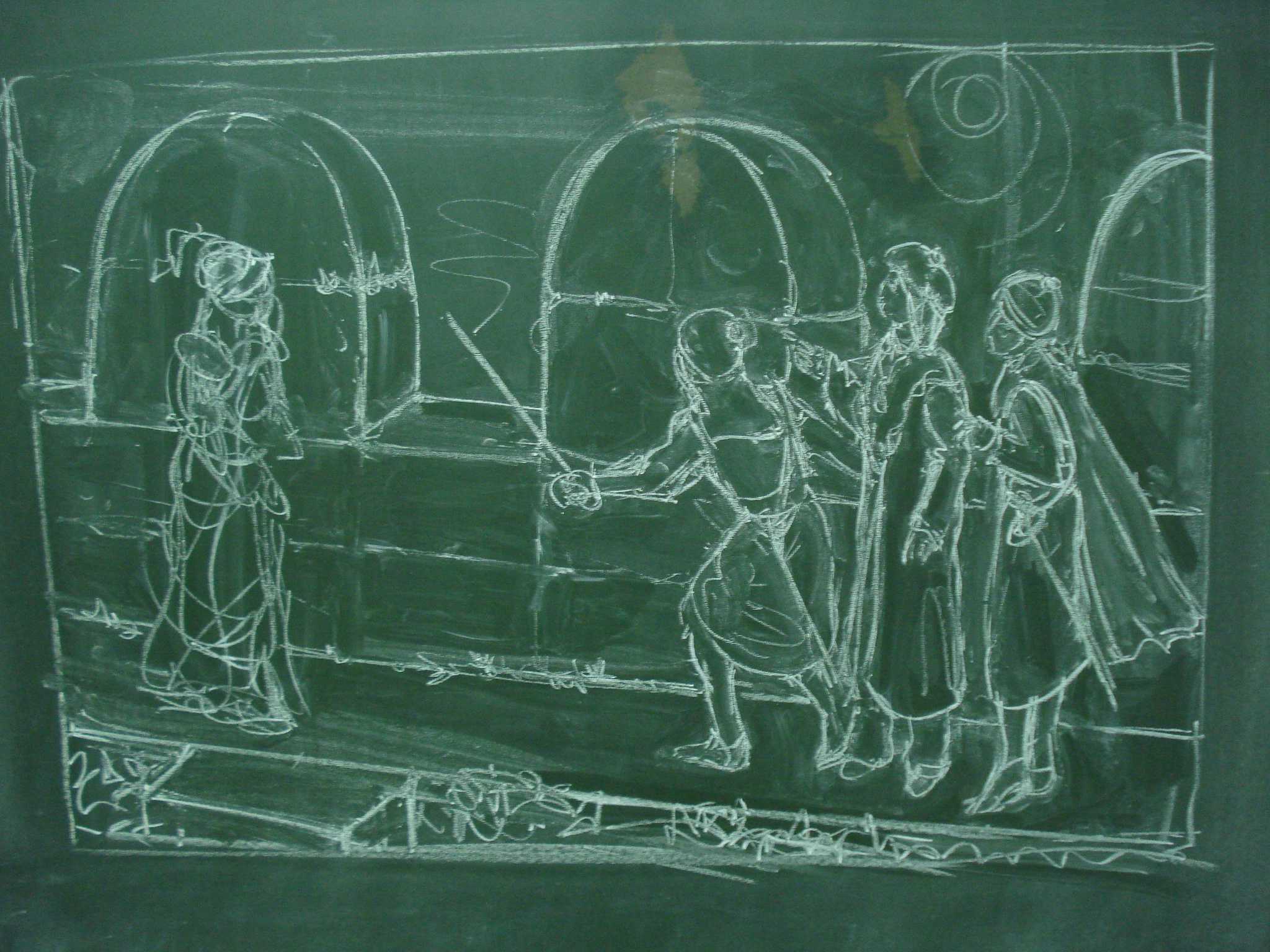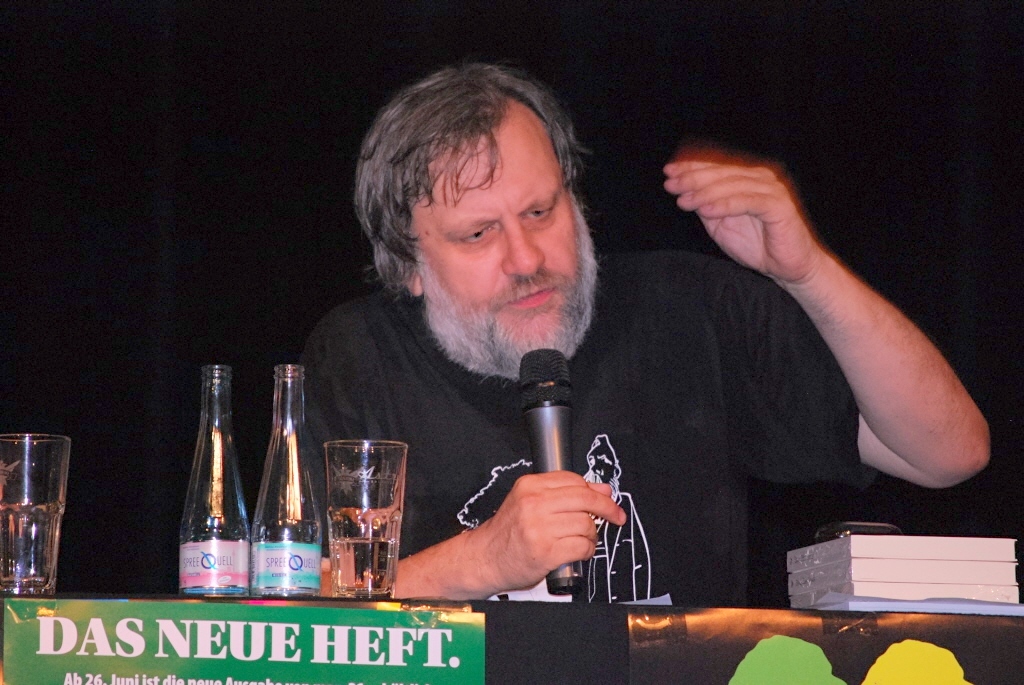The following is the second part in a two-part installment. The first part can be found here.
On Epistemology
Postmodern thinking is generally suspicious against post-Enlightenment epistemological projects, which aim to achieve objective knowledge. Postmoderns typically deny the possibility of having neutral “God’s point of view” or “a view from nowhere” to things. Instead, our knowledge is perspectival; if we perceive x, we perceive x always from a particular angle. Moreover, we perceive things as they are going through change.[1]
Lutherans have generally been suspicious toward natural theology since it has seen as a suspect attempt to rely on earthly wisdom, instead the wisdom of the cross. The knowledge of God cannot be attained through philosophical argument based on nature but only through God’s own self-giving and self-revelation.[2]
Luther thinks that reason is no longer pure, but tainted by sin and concupiscence. Therefore, it can lead people astray. In this context, Luther distinguishes between reason and wisdom. Human beings can use their reason even in a state of corruption, but lack of wisdom means that reason can be used for evil purposes. The more the subject matter has to do with efficient and final causes, the more likely the absence of wisdom will have negative effects on reasoning.[3]
Luther understands reason in at least three different contexts.[4] First, there is corrupted reason, which produces all kinds of evil. This reason is tainted with lust and a love of wrong things, so that it gives impure impulses to the will, making what is in fact immoral seem good and right. Second, there is natural or philosophical reason, which can detect at least some of the basic principles correctly, being virtually untouched by the Fall.
Without outside help, reason can know that God exists, that he is the creator of the world, all-powerful, and perfect in every way, that he is just, and that he is good. In addition, even corrupt people can have at least some knowledge of natural law. However, when philosophical reason looks at the central Christian claims, it does not know how to interpret them.[5]
Third, there is purified reason, which is joined with faith and is thus able to produce accurate conclusions about the origins and telos of creation.[6] When Luther says that reason and philosophy cannot help theology in any way, and can even be disastrous to it, he clearly uses the word in the first sense.
The point where Luther diverges from postmodern masters of suspicion is in the topic of certainty.[7] A Christian needs to be sure about his or her status before God. In his Commentary on Galatians Luther even suggests that the believer should know himself as God knows him.[8]
In The Bondage of the Will, he insists, “If you remove the certain assertion, you destroy the Christian Faith. The Holy Spirit is no skeptic, and it is not doubts and opinions that he has written on our hearts but assertions more sure and certain than life itself and all experience.”[9] However, the certainty that Luther speaks about here is no ordinary certainty that is linked to worldly knowledge. Theological certainty is even more certain than any knowledge about the things of this world because it is revealed to the believer by all-knowing God. Thus, it is not a product of our own making, but it is produced in us.
On Ethics
At the center of postmodern ethical thinking is suspicion against hierarchies and structures of power.[10]  More precisely, it is the concern for justice and the fate of “excluded other” that concerns postmodern theorists the most. Surprisingly, it is possible for systems of justice to become oppressive, and this is where Derrida, amongst others, sticks his finger. Derrida argues that our concept of justice is necessarily limited and the worst results are often harvested when people think that they know what is just but they act only based on very limited sense of justice.[11] Furthermore, it is also typical for postmodernists to attempt to uncover hidden intentions and motives behind outward actions.
More precisely, it is the concern for justice and the fate of “excluded other” that concerns postmodern theorists the most. Surprisingly, it is possible for systems of justice to become oppressive, and this is where Derrida, amongst others, sticks his finger. Derrida argues that our concept of justice is necessarily limited and the worst results are often harvested when people think that they know what is just but they act only based on very limited sense of justice.[11] Furthermore, it is also typical for postmodernists to attempt to uncover hidden intentions and motives behind outward actions.
Moreover, postmodern ethics is oriented towards action, or practice, that seeks to change things for the better. Postmodernists often reduce religion to ethics, for example, John Caputo claims: “Religion is ethics; it is doing your duty where the voice of duty or conscience is taken as the voice of God.”[12] Ethical duties are typically directed towards “the Other”, who present us an obligation of unconditional and absolute demand of hospitality and love.[13]
The Lutheran Reformation is often depicted as a movement from captivity to freedom. Obviously, this was also Luther’s own interpretation. For example, he started to sign his letters as “Eleutherius” (Greek eleutheros, free) soon after he had nailed the 95 theses on the Wittenberg church door, and he used the title of one his most famous books (De Captivitate Babylonica Ecclesiae, 1520) to underscore the true nature of his previous masters.
However, freedom has always been a problem for Lutherans. The peasants and radical reformers thought that freedom is indeed good and it must be achieved by any means necessary, which Luther abhorred. As is often the case with reformers, they set the train in motion but they are unable to make it stop at their desired destination as it gains more speed.
Among others, Reinhard Hütter and David Yeago have examined in detail the problem of freedom in the Lutheran theology.[14] According to Hütter’s analysis, the post-Reformation Lutheran theology has been sliding towards notions of abstract, or formless, freedom where almost anything goes as long as it fulfils some vague notion of the good. In effect, this means that Lutheran ethics is reduced to general rules without particular definition.[15]
Golden rule appears often as the summa of Lutheran thinking but as such it is vacuous: Am I really in the positions to assess what is my neighbor’s best? Aren’t our intentions and inclinations tainted by sin? How can they serve as the norm for the good? If this reduced version truly is what Lutheran ethics is about then there is very little that sets it apart from postmodern theorization, where individual autonomy and the independence of ethical subject are the supreme norm.
However, this reduced view is hard to bring in line with Luther’s thought. For him, general rules are always given form through particular commandments, specifically in the form of the Decalogue and the commandments included in the New Testament canon.[16] Lutherans do not think that hierarchies are necessarily bad as some of them are divinely instituted. For example, Lutherans think that the ordained ministry is divinely instituted and not just a contingent way of organizing ecclesial life.
Luther’s theology has two well-known special principles that have a hierarchical function. The Two Kingdoms doctrine was originally supposed to give the church its own space and set it out of reach of secular rulers.[17] The Three Estates (Church, household, state) set in similar fashion these three spheres apart from each other, and also in hierarchical order. The Church is the highest and it existed already in paradise. The household is a part of the good, original creation as well, but the state is needed only after the Fall to limit the evil inclinations of human beings.[18]
 The Lutheran Book of Concord lays out the basic rules on how to the live with secular hierarchies (e.g. CA, XVI). The possibility to resist rulers remains but the conditions of revolt are clearly outlined. The rulers need to be obeyed as long as they do not ask one to commit sins. Lutherans also subscribe to the just war practice.[19]
The Lutheran Book of Concord lays out the basic rules on how to the live with secular hierarchies (e.g. CA, XVI). The possibility to resist rulers remains but the conditions of revolt are clearly outlined. The rulers need to be obeyed as long as they do not ask one to commit sins. Lutherans also subscribe to the just war practice.[19]
Finally, it must be noted that Lutheran theology and postmodern philosophy share a common emphasis on practice (praxis).[20] This is perhaps best seen in George Lindbeck’s construal of the nature of doctrine as a cultural-linguistic practice that is not just mere reproduction of propositional content or mere exposition of subjective emotions but a complex unity which joins theory and practice together.[21]
As it was noted, Lutherans have never been very interested in the natural theology in Aristotelian sense. Instead for Lutherans, the proof is in the pudding. The preacher of the Gospel does not try to convince his listeners with the help of neutral proofs but by means of the Law and Gospel, which address the self-understanding of the person as an agent who lives his or her life in the tension of perfect ideal and suboptimal performance.[22]
Moreover, the social aspect has always been central to Lutheran reformation. The focus in renewing the life of the church was not limited to just doctrinal issues but to the life of society in general. In fact, the difference between “dogmatics” and “ethics” would have been for this reason unthinkable for Luther. The doctrine of mercy addresses our ethical shortcomings, and ethical deliberation draws deeply from dogmatic sources.[23]
On forgiveness
The notion of “giving” has been one of the recurring themes in postmodern philosophy and theology.[24] In the postmodern debate, the point of departure has been Nietzsche’s account of giving as a way to establish a power relation through economic change and consequent dependence.
Derrida goes to the other extreme and tries to depict “pure gift” as an inherently disinterested act. Because “normal” giving always establishes a structure of power, Derrida goes after something else. In the end, the pure gift is a gift given by nobody to nobody in particular without any particular intention.[25] Translated into theological language, a form of giving would be an act that has no ifs attached to it.
Lutherans typically cherish the idea of God’s free, unconditional and universal love.[26] But how does it compare with the idea of Derridean giving? A standard analysis of giving includes four elements: the giver, the gift, the recipient, and the beneficiary. Observing these elements, we easily see that the gift exchange always involves a personal element. I cannot give a book to a bookshelf, and I cannot receive a gift from a bookshelf.
In the case of Christian faith, not only the giver and the recipient are personal, but the gift and the beneficiaries are also personal. In fact, we could say that only giving and receiving makes us persons in the first place. Moreover, in some Trinitarian models, we could even say that God is the giver, the gift, the recipient, and the beneficiary, all in one.
In contrast, the attempts of several postmodern thinkers to resist modernity and its reading of the world only reiterate the modern violence in a new form. The basic problem in both of these ways is to keep the person in the picture. In the Nietzschean case, the person has only instrumental value. In the Derridean case, the personhood disappears altogether.[27]
Luther explains in his Commentary on Galatians how when the sinner looks at Christ, the sinner receives the form of Christ, or that his or her faith is formed by Christ.[28] Here the language of gift is central: Christ gives himself to the one who believes. Luther opposed the idea that the sinner receives only a new state of mind that enables her to perform better. The thing that gives form to the faith is not the person’s own active love, or an idea about Christ, but Christ himself, who is Love personified. This means that we are made one with a person who is Love, not just with an idea about a person or something that refers to the person. And this should have some bearing on how we see ourselves and who we are, and how we relate to ourselves and the others around us.
A gift can be given only in the context of personhood and desire. A gift is a gift only if I am interested in the person to whom I give something and with whom I want to establish a relationship. Nietzsche and his allies may object that I am only seeking to establish a power relation, but why should I believe them? Why should I think that giving exposes the primordial will to power rather than the even more primordial will to love, to sacrifice one’s own self and thereby establish a relationship where gifts are given and received without the fear of debt?
Contrariwise, the endless circle of critique should follow from post-Nietzschean notions of the gift, which are ultimately unable to guarantee the reality of love and existence of real personhood. From the Lutheran viewpoint, the postmodern notions of giving appear too monolithic, too interested in just one particular good.[29] Granted, Lutheran theology may also appear as monomaniac in its tendency to safeguard the idea of sola gratia. If the idea of grace is divorced from the personhood of believer and the personhood of Trinitarian giver, this can lead to obsessive preoccupation with philosophical principles that is removed from properly theological framework.
Concluding Thoughts
I think it has been sufficiently clear that I do not think that Lutheran theology can be taken simply as a pious form of postmodern philosophy.[30] There are clear philosophical, and theological, differences. Yet Lutheran thinking is obviously more postmodern than modern – if we mean by ‘postmodern’ the weaker version of postmodernism.[31] Lutheran thinking contains elements that make it hard to combine with scientific modes of rationality and consequently push it towards more romantic, subjectivistic and existentialist modes of thought.
It is perhaps not a coincidence that Friedrich Nietzsche, Friedrich Jacob Jacobi, Johan Georg Hamann, Sören Kierkegaard and all the big names of existentialist religion from Friedrich Schleiermacher to Rudolf Bultmann, Martin Heidegger (yes, he was a Catholic, but heavily influenced by Luther) and Paul Tillich and have been Lutheran.
One might suppose that if Lutheran theology is so nicely resonant with postmodern sensibilities it should have enjoyed remarkable success in the contemporary Western world. However, this has not been the case. Lutherans in the West suffer from the same problems as every other mainline Protestant denomination: brain-drain, rapid decline of active members and severe financial problems.
Moreover, the particularly Lutheran ways of doing theology do not seem to be at the cutting edge of theological enquiry. They either draw attention of a small sphere of scholars (who are typically either very liberal or very conservative) or they are already geared towards ecumenical Christianity so that the Lutheran part appears as an ingredient that does not have a major role in the end product (I am thinking, for example, of the systematic theologies of Robert W. Jenson and Wolfhart Pannenberg).
Pannenberg himself quipped some time ago that Lutheranism would quite likely sink into oblivion within next five decades. He might be right. Mainstream Lutheran church bodies do not show signs that could warrant positive predictions about their chances of survival in the long run, and non-mainstream Lutherans (who are not losing members as fast) do not seem to gather large masses in the Western world even if some of these communities are growing.
If Lutheranism survives somewhere in the form that is going to have a larger influence in the society, it will be in the Global South.[32] But at this point we have no clear picture of what kind of Lutheran theology the South will produce and who will be their main dialogue partners in philosophy and in other Christian communities.
Dr. Theol. Dr. habil. Olli-Pekka Vainio (University of Helsinki) is University Lecturer of Systematic Theology at Faculty of Theology, University of Helsinki. His research interests include history of philosophy and theology, and contemporary philosophy of religion. His most recent publications include Disagreeing Virtuously (Eerdmans 2017) and Cosmology in Theological Perspective (Baker 2018).
[1] Friedrich Nietzsche, On the Genealogy of Morals. Transl. by Ian Johnston. Arlington, VA: Richer Resources, 2010), III, 12
[2] See, e.g., Jenson, Systematic Theology. Vol 2, 153-155; Paul R. Hinlicky, Divine Complexity. The Rise of Creedal Christianity (Grand Rapids: Eerdmans, 2011), 1-2.
[3] See especially Luther’s Disputatio De Homine, where he claims that unaided natural reason functions well when it reasons about material causes (of human being), starts to falter with formal causes and is completely clueless about efficient and final causes.
[4] Theodor Dieter, “Martin Luther’s Understanding of “Reason”,” Lutheran Quarterly XXV (2011), 249–278; Denis Janz, “Whore or Handmaid? Luther and Aquinas on the Function of Reason in Theology,” in The Devil’s Whore. Reason and Philosophy in the Lutheran Tradition, ed. by Jennifer Hockenberry Dragseth (Minneapolis: Fortress Press, 2011), 47–52; Bruce Marshall, “Faith and Reason Reconsidered: Aquinas and Luther on Deciding What Is True,” The Thomist 63 No. 1 (Jan. 1999), 1–49; Roland Chia, “Protestant Reflections on Pope Benedict XVI’s Faith, Reason and the University,” Dialog 46 No. 1. (Spring 2007), 66-77.
[5] Jerry K. Robbins, ‘Luther on Reason: A Reappraisal’, Word & World XIII no. 2. (Spring 1993): 197. Luther on proofs of God’s existence, see Siegbert W. Becker, Foolishness of God. Place of Reason in the theology of Martin Luther (Milwaukee: Nortwestern Publishing House 1999), 24–36.
[6] WATr 3, 105, 2938: “Before we come to faith and the knowledge of God, our reason is darkness; in the believer, however, it is a most useful tool… Faith then is aided by reason, rhetoric, and language which were such great obstacles before we had faith. Enlightened Reason which is incorporated into faith receives gift from faith. …Reason in godly men is something different since it does not fight with faith but rather aids it.”
[7] Wolfhart Pannenberg, Systematic Theology Vol 3 (Grand Rapids: Eerdmans, 1993), 162-166.
[8] WA 40 I, 650, 21-32.
[9] LW 33:24.
[10] See, e.g., Simon Critchley, Continental Philosophy (Oxford: Oxford University Press, 2001), 73–74.
[11] Smith, Jacques Derrida, 65–68. Derrida’s claim “deconstruction is justice” means effectively weakening our trust on our judgments of justice.
[12] Caputo, Philosophy and Theology, 32. See also his, What Would Jesus Deconstruct? The Good News of Postmodernism for the Church (Grand Rapids, Baker, 2007).
[13] Smith, Jacques Derrida, 76–79. It is perhaps worthwhile to point out one of the foundational ironies of postmodern thought. Postmodernism attempts to offer a safe space for every identity, and to reach this goal it draws heavily from philosophical anti-realism that has been favoured by several thinkers on the Left. However, anti-realism gives you very thin concept of persons, which is inadequate for robust ethical theorization. Even more puzzling is that it is nowadays often the Liberal Right that seeks to safeguard this goal, not the Left. Christopher Butler argues that postmodernists have been very effective in pointing out the problems in contemporary society but so far there have been very few constructive proposals how we should live after the old ways of thinking have been cast out. Often, in Butler’s mind, it seems that postmodernism is a form of “passive conservatism”: it just hopes that some forms of classical humanism will survive the end of metaphysics, and the person. Christopher Butler, Postmodernism. A very short introduction. (Oxford: Oxford University Press 2002.) See also John Haldane, “Rational and other animals”, in John Haldane, Reasonable Faith (London: Routledge, 2010), 120–128.
[14] Reinhard Hütter, Bound to be Free (Grand Rapids: Eerdmans, 2004), 111-184; David Yeago, “Gnosticism, Antinomianism, and Reformation Theology. Reflections on the Costs of a Construal”, Pro Ecclesia Vol. II, No. 1. (1993), 37–49.
[15] See also Robert Benne, “Lutheran Ethics: Perennial Themes and Contemporary Challenges”, in Karen L. Bloomqvist & John R. Stumme, eds., The Promise of Lutheran Ethics (Minneapolis: Fortress, 1998), 11-30.
[16] In his Catechisms, Luther sets the Decalogue as the central element for daily mediation. See also WA 16, 431, 14ff; WA 39/1 47, 25–36.
[17] It is well-known that the doctrine became corrupted over the years and partly enabled the horrid events in the early 20th century Germany, when German Christians interpreted it so that God has a way of ruling the world through earthly rulers and Christians should obey them. This effectively led to a very nationalistic form of religiosity where it became increasingly difficult to criticise the earthly rulers (this idea was still a part of the original doctrine). Arne Rasmusson, “Historiography and Theology. Theology in the Weimar Republic and the Beginning of the Third Reich,” Kirchliche Zeitgeschichte 20:1 (2007): 155–180.
[18] Oswald Bayer argues that the Estates are actually more important for Luther than the Two Kingdoms principle and paying more attention to how estates are structured would prevent one from making too simplistic categorizations (e.g., splitting the world between religious and secular spheres). Oswald Bayer, Martin Luther’s Theology. A Contemporary Interpretation (Grand Rapids: Eerdmans, 2003), 122–126.
[19] WA 39 II, 40. (Die Zirkulardisputation über das Recht des Widerstand des gegen den Kaiser (Mt. 19, 21)). For a critical view of Luther’s political theology, see Andrew Bradstock, “The Reformation”, in Peter Scott & William T. Cavanaugh, eds, The Blackwell Compation to Political Theology (Oxford: Blackwell, 2004), 62-66.
[20] For example, Miika Tolonen notes the affinity of Stanley Hauerwas praxis-oriented theology and Nordic Lutheran Christianity. See Miika Tolonen, Witness is Presence. Reading Stanley Hauerwas in a Nordic Setting (Eugene, OR: Wipf and Stock, 2014), 4–5.
[21] George Lindbeck, The Nature of Doctrine. Religion and Theology in a Postliberal Age (Louisville, KN: Westminster John Knox Press, 2009).
[22] This tendency is well depicted in Adolf Koeberle, The Quest for Holiness. A Biblical, Historical and Systematic Investigation. Transl. by John C. Mattes (Minneapolis: Augsburg Publishing House, 1938). According to Koeberle, the human condition can summarized with the help of following observations. In order for a deed to be genuinely good, it needs to proceed from pure motives. However, our motives are usually corrupt, and moreover, we are unable to atone our wrongdoings, to change our past, and reasonably believe that we can perform any better in the future.
[23] Antti Raunio, Summe des christlichen Lebens: Die “Goldene Regel” als Gesetz der Liebe in der Theologie Martin Luthers von 1510—1527 (Stuttgart: Franz Steiner Verlag, 2001).
[24] John Caputo & Michael Scanlon, God, Gift, and Postmodernism (Bloomington: Indiana University Press, 1999).
Risto Saarinen, God and the Gift: Ecumenical Theology of Giving (Collegeville: Liturgical Press, 2005).
[25] For example, Jacques Derrida, Given Time 1: Counterfeit Money (Chicago: University of Chicago, 1992).
[26] One doctrinal point of departure from the medieval Catholicism was the heavy critique of the nominalist concept of merit, which functioned as the basis for justification. Instead, the person is justified without any preceding merits.
[27] Along these lines, David Bentley Hart has argued that the Derridean notion “so exaggerates the selflessness of divine love as effectively to evacuate the image of God of all those qualities of delight, desire, jealousy, and regard that Scripture ascribes to him. Such a separation of loves receives perhaps its appropriate parody in the image of an endless and disinterested outpouring of nothing toward nothingness. But in what sense, precisely, is an agape purified of eros distinquishable from hate? Or utter indifference? …Would there not be something demonic in a love without enchantment, without a desire for the other, a longing to dwell with and be recognized by the other?” David B. Hart, The Beauty of the Infinite (Grand Rapids: Eerdmans, 2003), 264.
[28] WA 40 I, 228–229.
[29] Smith (Jacques Derrida, 72) argues that Derrida’s notions of justice ends up in contradiction because it is unable to reconcile the pure ideal with the reality of earthly society.
[30] Some forms of postmodern thinking (even those who appear as atheistic) can be regarded as properly religious. See, e.g., Bruce Ellis Benson, Pious Nietzsche. Decadence and Dionysian Faith (Bloomington: Indiana University Press, 2007).
[31] J.G. Hamann eccentric philosophical theology is perhaps worth mentioning here. Hamann was a contemporary and friend of Kant, who offered an alternative to Kant’s philosophy based on Lutheran theology of language as the mediator between the world and us. In a way, Hamann was a postmodern thinker long before the postmodern turn. Oswald Bayer, A Contemporary in Dissent. J.G. Hamann as a Radical Enlightener (Grand Rapids: Eerdmans, 2012); John Betz, After Enlightenment. The Post-Secural Vision of J.G. Hamann (Oxford: Blackwell, 2008).
[32] Perhaps it is the parts in “postmodern Lutheranism” that are pre-modern that give it the mileage it has. By pre-modern, I mean understanding philosophy as a way of wisdom and as a practical guide for living righteously. This would enable flourishing of Lutheran communities in contexts where these issues are still on the table.




